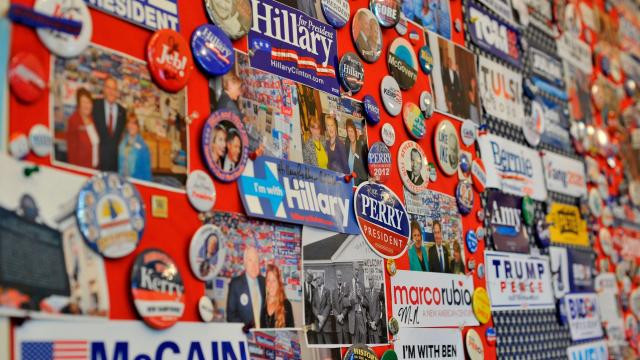Everything about digital political ads, from their truthfulness to even their design, has been a hot-button issue for the past few months. Facebook and Twitter have already weighed in with their stances, and now Google has also announced that it will restrict how political groups can target audiences starting early next year.
In a nutshell, Google’s decided that political advertisers can only target people based on their age, gender, and location at the postal code level. Previously, in the U.S., Google has offered what it calls “basic political targeting capabilities” to verified advertisers, meaning you could be shown ads based on public voter records and general political affiliations (i.e., left-leaning, right-leaning, independent, etc.) Political advertisers, however, will still be allowed to make use of “contextual targeting.” Basically, that means a political group would still be able to throw their ads at people based on the types of stories they read or watch.
Google defines election ads as those that include any reference to a federal candidate or officeholder, according to a tweet from Jenna Lowenstein, Cory Booker’s deputy campaign manager, that included screenshots of the email Google sent to campaigns. That includes ads that include phrases like “Call Your Senator” or “Tell Your Congresswoman.” Beginning December 3, that definition will be expanded to include ads referencing state elections, ballot propositions, and federal and state parties. It’ll also include ads with phrasing like “Keep abortion safe and legal” or “Protect the second amendment.”
“This will align our approach to election ads with long-established practices in media such as TV, radio, and print, and result in election ads being more wildly seen and available for public discussion,” wrote Scott Spencer, Google’s vice president of product management for Google Ads, in a blog.
Google said in its post that enforcement of the changes will roll out in the UK within a week ahead of the country’s general election but it will be implemented worldwide starting January 6, 2020. The BBC has since clarified that these rules already applied to Google’s ad policies in the UK and EU prior to the announcement. It’ll also apply to search and display ads, as well as YouTube ads. According to Google’s Transparency Report, $US130 ($192) million has been spent on over 175,000 political ads via Google in the U.S. since May 31, 2018.
But stricter targeting isn’t the only thing Google’s doing. In its blog, Google stated that it would clarify its ad policies regarding false claims. To that effect Google says it will add “examples to show how our policies prohibit things like ‘deep fakes’ doctored and manipulated media, misleading claims about the census process, and ads or destinations making demonstrably false claims that could significantly undermine participation or trust in an electoral or democratic process.” While that might sound like a good thing, Google also hedged its claims saying that it did not expect to take action on a large number of political ads but would continue to do so for “clear violations.”
As you might expect, political consultants aren’t too happy about the change. Some have taken to Twitter to vent their rage. Brad Parscale, the campaign manager for President Donald Trump, tweeted that Google’s restrictions were the result of political elites and Big Tech “rigging elections.” Meanwhile, Keegan Goudiss, a Democratic strategist, griped to the New York Times that “We are quickly transitioning to a world where corporate communications is prioritised over anything deemed ‘political.’ That’s dangerous for democracy.”
Regardless of who does or doesn’t like Google’s decision, this move is clearly a response to the recent discourse surrounding Big Tech and their role in influencing elections. Facebook has stated that it will not fact-check political ads, and Mark Zuckerberg reportedly had an undisclosed meeting with President Trump in October just as we’re getting into the heart of election advertising season. Meanwhile, last week Twitter detailed a plan to prohibit political content in paid ads from candidates and political parties.
